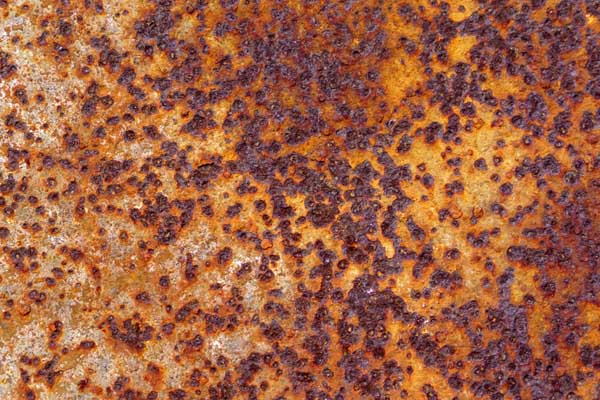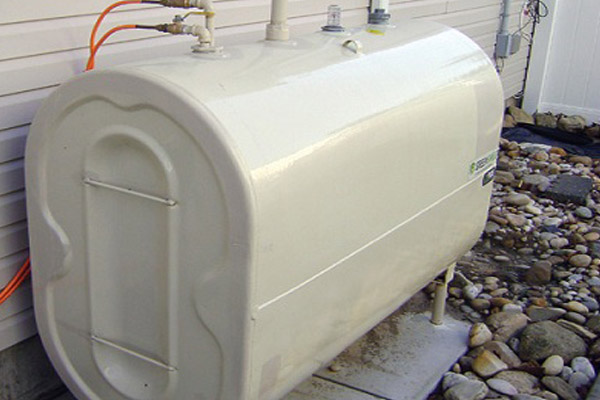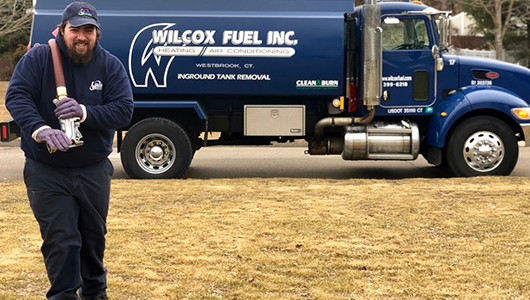Contents

Oil heating systems use fuel oil tanks to store and secure fuel. This is a well-working setup, but it requires proper maintenance and care. For example, water can sometimes make its way inside your heating oil tank, causing issues like oil tank condensation. The good news is you can prevent this type of oil tank problem from happening.
Oil Tank Condensation: What You Need To Know
Keep reading to know more about oil tank condensation and what you can do to prevent it.
How & Why Water Gets Inside Your Home Oil Tank

Water can be found everywhere in nature. It also comes in various forms. Water can get into your oil tank slowly. Once you determine how water got in your oil tank, you can better prevent it from recurring.
- Rainwater: An outdoor tank is exposed to rainwater. Water is a persistent element. It can get in your tank through loose caps, lids, and other narrow gaps and tight spaces. A tank installed near your home is also vulnerable to gutter overflows. Old tanks may have cracked walls, damaged seals, or other weak spots.
- Condensation: Condensation is always a threat, no matter where your tank is. Air vents can suck in moisture from outdoors. A sufficiently low interior temperature can also result in the water vapor turning from gas to liquid. Droplets can form in the interior walls of the tank and drop to the bottom after some time. A few droplets aren’t a big issue. However, the condensation worsens over time if you don’t do anything about it.
- Groundwater: If you own an underground tank, water can get in if the tank has holes. This is a concerning issue because oil can leak and contaminate the soil as water moves in. Be sure to call an HVAC professional when your underground tank has any damage.
What Happens If Water Gets into My Heating Oil Tank?

It is hard to detect moisture in your tank through observation because oil floats on water. Having an underground tank makes it more challenging because it is inaccessible. As a result, we see many cases wherein the water isn’t detected for extended periods. It only becomes evident when the symptoms pop up.
It is better to actively take steps to prevent water from getting in the oil tank than to deal with water damage. Regular oil tank inspections and upkeep save you from a lot of problems. Routine checks include placing a water-finding paste at the bottom of the tank, where water likely settles. Ensure that you use manufacturer-recommended paste or consult with your heating oil expert. There is moisture if the paste turns to another color. A professional needs to check it immediately if large water quantities are present.
How To Prevent Heating Oil Tank Condensation

Now that you know how water can get in your tank, you can better prevent it from happening. Here are some strategies you can do:
- Inspect the Fuel Oil Tank: Make it a habit to examine the tank’s exterior. Look for any signs pointing to damage, like paint chips, perforations, and rust. Be sure that all lids and caps are closed. If not, screw them tightly.
- Test the Oil Tank for Water: A visual check won’t catch everything, so periodically conduct water tests. Use a water-finding paste and place it at the bottom of the tank. If you have an underground oil tank, have a soil contamination test to check for water presence.
- Protect The Heating Oil Tank from Heat: To protect your new tank from heat, install it under a shade. It would help if you also painted its exterior with light-colored reflective paint. This way, condensation in the tank from large temperature fluctuations occurring outside the tank is reduced.
- Keep Your Oil Tank Full: Allowing the fuel level to plummet lets more moist air inside your oil tank. As a result, condensation is more likely to occur. Get an oil delivery before this happens. Ensure that your tank is full in the heating season and the off-season.
- Call the Pros: Professionals can check your oil tank and replace old ones as needed. Moreover, they can recommend the best place to install it to ensure an extended lifespan.
How A Professional Removes Water From Your Oil Tank

If the moisture test has a positive result, you can use three methods to eliminate the standing water. But it would be best if you leave this in the hands of a professional. Below are the three ways a professional may remove the water from your oil tank, depending on the case.
- Drain: Sludge valves are at the bottom of metal tanks. An HVAC expert will open it and let the water flow out. Oil may also run out at times. If so, they will collect it so it can be disposed of correctly.
- Pump: This valve isn’t present in plastic tanks. So you can use a hand pump to remove small amounts of water. However, if there’s a large volume of water, call a reliable HVAC technician to help you.
- Absorb: An HVAC expert may also put a water-absorbent sock inside the tank to keep water from settling at its base. The socks require periodic replacing, and the old ones should be disposed of carefully. Pros can also utilize an alcohol-based dispersant.
Potential Damages of Not Removing Water From Your Oil Tank
- Oil Tank Rust: People may think that water won’t cause any harm and ignore it. However, neglecting it can cause damage to your heating system after some time. For instance, water can start corroding the walls of your oil tank. Most of the steel oil tanks begin rusting from the inside. It may look like a perfectly fine tank outside, but its interior may be rotting away. The walls become weak when this happens, resulting in issues down the line. There will also be a drop in the system’s efficiency and performance.
- Freezing: Oil has a low freezing point, which means you do not have to worry as it can sit in the cold during winter. This is not the case with water, as it freezes when the temperature drops to 32 degrees Fahrenheit or 0 degrees Celsius, which commonly occurs in some regions. The oil supply pipes become clogged if frozen water is in your tank. This can result in complete system failure when you need home heating the most.
- Bacteria: Moist environments typically cause bacteria to thrive. Therefore, water in your heating oil tank makes it an ideal place for these microorganisms to multiply. They can form sludge at the base of the tank. They can also produce acid that quickens corrosion in the tank and other components, such as the fuel lines, filters, and burners. This causes major problems.
Conclusion
Water shouldn’t be inside your heating oil tank. Ensure that it is kept out so tank damage and heating unit issues are prevented. Follow the preventative strategies in this article and consult a professional for help in advanced cases.
Call Wilcox Energy For Reliable Heating Oil Deliveries & HVAC Services

For top-notch service and competitive prices on heating oil deliveries and HVAC services, contact Wilcox Energy as soon as possible.
We offer a broad range of fuel delivery plans and financing options, which allow you to customize your oil deliveries to meet your specific needs. We also deliver Bioheat® heating oil, a blend of ultra-low sulfur heating oil and biodiesel. This liquid renewable fuel makes your home more eco-friendly and your heating system more efficient. It comes to you without any added cost. In addition, we perform heating system repairs and maintenance for the purpose of enhancing the overall efficiency and functionality of all your home heating equipment. Contact Wilcox Energy for all of your residential heating needs. Click the link to view our service area.
For more information about our heating oil deliveries or HVAC services, be sure to contact Wilcox Energy. You can click here to contact us or call us at (860) 399-6218. Call now!
